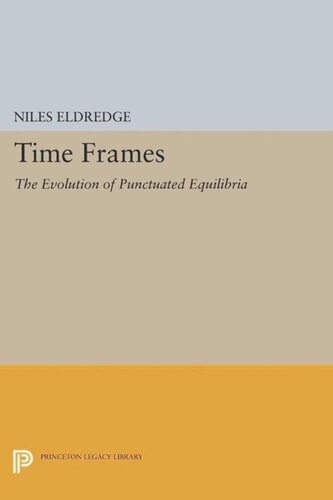

Most ebook files are in PDF format, so you can easily read them using various software such as Foxit Reader or directly on the Google Chrome browser.
Some ebook files are released by publishers in other formats such as .awz, .mobi, .epub, .fb2, etc. You may need to install specific software to read these formats on mobile/PC, such as Calibre.
Please read the tutorial at this link: https://ebookbell.com/faq
We offer FREE conversion to the popular formats you request; however, this may take some time. Therefore, right after payment, please email us, and we will try to provide the service as quickly as possible.
For some exceptional file formats or broken links (if any), please refrain from opening any disputes. Instead, email us first, and we will try to assist within a maximum of 6 hours.
EbookBell Team

4.4
22 reviewsScientists have recently begun to question one of the pillars of modern thought--Charles Darwin's theory of evolution. Certainly evolution occurs; but if it is a slow, continuous process by which one species gradually modifies itself into a new one, as Darwin believed, why are there so many missing links in the fossil records? Two eminent scientists, Niles Eldredge and Stephen Jay Gould, startled the world by challenging Darwin's cherished beliefs proposing instead that once a species has evolved it rarely undergoes change, and that the evolution of new species occurs only periodically, in relatively rapid spurts. In Time Frames Niles Eldredge explains how his own work with trilobite fossils led him to this unexpected conclusion, and describes the fascinating development of the new theory of punctuated equilibria.
Originally published in 1989.
The Princeton Legacy Library uses the latest print-on-demand technology to again make available previously out-of-print books from the distinguished backlist of Princeton University Press. These editions preserve the original texts of these important books while presenting them in durable paperback and hardcover editions. The goal of the Princeton Legacy Library is to vastly increase access to the rich scholarly heritage found in the thousands of books published by Princeton University Press since its founding in 1905.